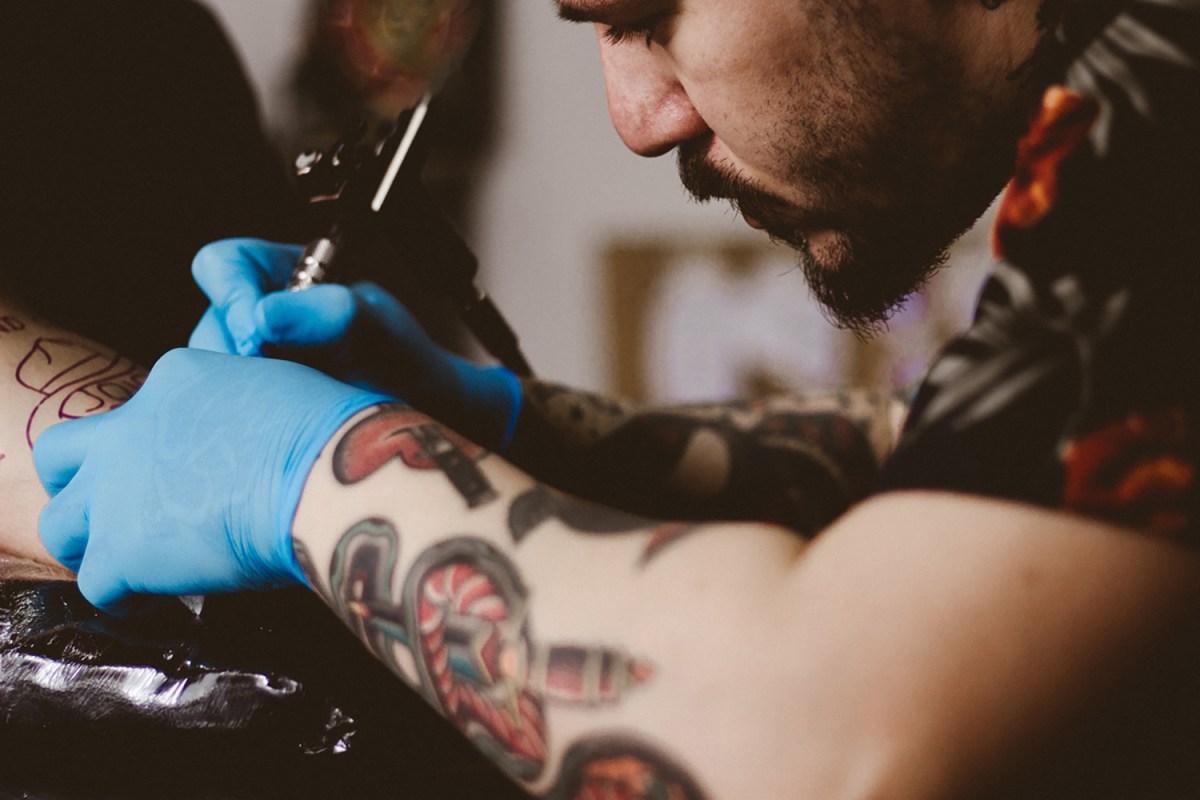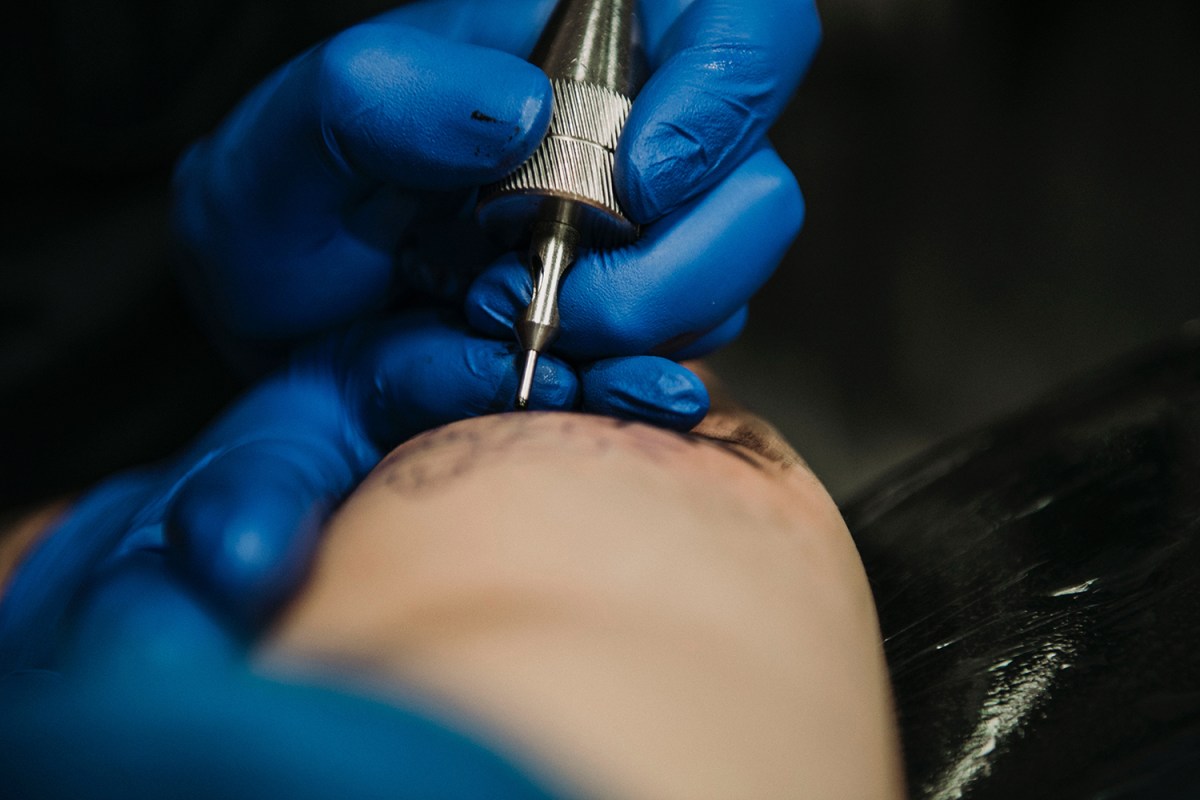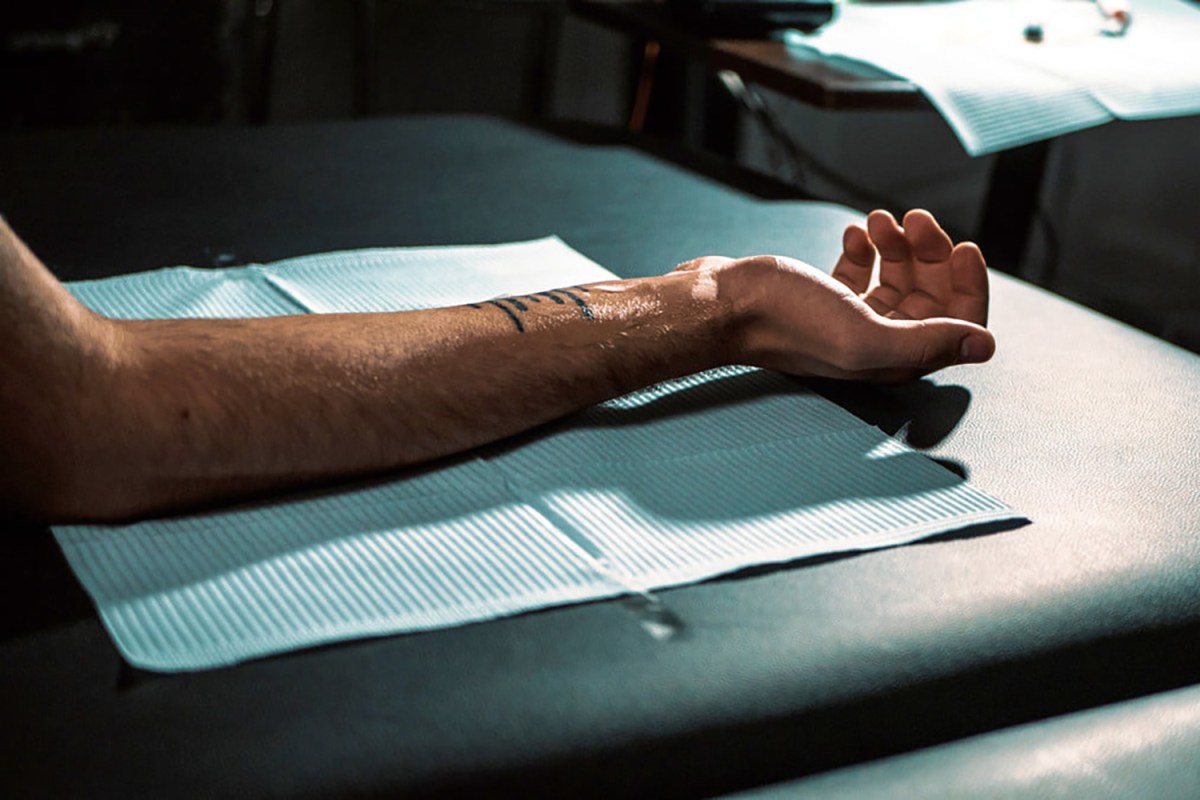So, you wanna get a tattoo. Hell yeah! The impulse to rush to the closest parlor for your first tattoo can be tempting, but it pays to tread slowly and do your homework.
“If you make rash decisions or want to be cool ASAP then you may end up with a shitty tattoo,” laughs Justin, the mysterious operator of @americanatattoos on Instagram, an account dedicated to celebrating the innovators who carry the torch of classic Americana-style tattooing.
Justin teamed up with The Manual to create an essential list of first tattoo tips, that way you don’t end up shelling $6,000 on laser removal for that Tweety Bird on your @$$.
Get Primal
Justin calls the hunger for a tattoo “a primal urge” and we love that term. The desire to get inked does seem to pull from somewhere deep in your gut. That’s because tattooing is a legacy.
“Tattooing has been around as long as man,” Justin says. “It’s a tradition.”
Before you get a tattoo, enjoy the excitement that comes with it. Thankfully, this feeling doesn’t just happen during your first piece but tends to come back again and again.

Choose Your Artist Wisely
“The gospel of Lyle Tuttle (the American tattoo legend) states, ‘Everyone gets the tattoo they deserve.’ What you get or why will not matter; your first tattoo will fit your personality,” says Justin. There are millions of tattoo artists and shops but your goal is to find the ones that fit who you are. So do your research. Sure, your cousin’s friend’s friend might offer to hook you up for cheap, but the realest piece of advice we can give is that good tattoos ain’t cheap and cheap tattoos ain’t good. This work of art (or crap) will live on your body, so make it a damn good one.
This work of art (or crap) will live on your body, so make it a damn good one.
“If you want your tattoo to fit you, seek out the right tattooer whose work speaks to you. Do what you have to do to be tattooed by them,” Justin says. “Fly there, drive there, walk there, and the rest will be magic.”
Once you’ve found a reputable shop, tell them what you want and they’ll pair you with the right artist. Listen to their suggestions (you are not the expert). Perfect example: Anthony Bourdain and his tattoos.
Plan for a Tip
After you book an appointment and receive a price estimate from your artist, start thinking about a tip. “Everyone loves a tip but it is not necessary,” says Justin. “Tattooers charge what they feel they should make for their time. We have always tipped but never felt obligated. If you are super stoked on your tattoo, tip the tattooer!” Especially if you want them to be your resident artist.
How much should you tip? A good rule of thumb is 20 percent, just like the service industry. However, the final amount is up to you.
Avoid Alcohol
On television shows and movies, you always see the guy who gets tattooed while drunk. This is the worst example ever. Drinking alcohol before a tattoo will thin your blood and make you bleed more during the process. Instead of tequila shots, eat a healthy meal to regulate your blood sugar before coming to your appointment. After all, you’ll have a mechanized needle stabbing your skin for a while.

Breathe
A tack-on to being fed and sober: breathe! Even the hardest dude will admit tattoos can sting, so take deep breaths. We hum to ourselves over the noise of the tattoo gun, which helps simulate deep exhales.
Follow Your Aftercare Instructions
We should say, healing ain’t hard unless you make it. Your tattooer will tell you exactly how to care for your tattoo. If the steps sound vague, that’s because the healing process is quite simple. Gently wash your tattoo a couple times a day with (preferably non-fragranced) soap and water, then apply an antibacterial ointment like Aquaphor. We also recommend these natural aftercare solutions.

Do:
- Listen to your artist
- Wash with soap and water
- Apply lotion or ointment as needed
Don’t:
- Cover with a bandage.
- Submerge underwater.
Don’t cover your healing tattoo with a bandage and don’t tan the area or take it swimming. The tattooed skin will most likely dry and peel off, signaling the end of the healing process.
If you did your homework and went to a reputable artist and parlor, aftercare will be easy peasy. However, if you went to your cousin’s friend’s friend, the healing may take longer or reveal that this Joe Bro applied too much pressure during the tattoo, leaving a scar.
Wait for the Urge to Get Another
After your first tattoo, you may say to yourself, “I did it — got that out of my system!” Don’t be surprised if in a year, a month, or, heck, a week, you get the urge or design inspiration for your next piece. In the meantime, visit @americanatattoos to get ideas and possibly find your next artist.
Article originally published August 9, 2018.


